Birmingham pub bombings: Man arrested in Belfast
- Published
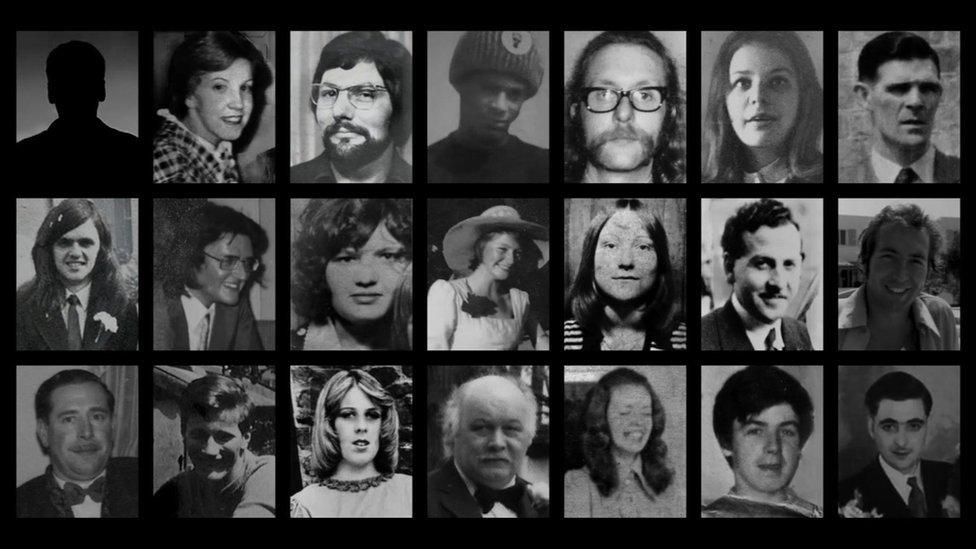
Twenty-one people were killed in two blasts on 21 November 1974
A man has been arrested in connection with the deaths of 21 people in the 1974 pub bombings in Birmingham.
The blasts at the Mulberry Bush and Tavern in the Town pubs on the night of 21 November also injured 220 people.
Officers from Counter Terrorism Policing West Midlands, working with the Police Service of Northern Ireland, arrested the 65-year-old at his home in Belfast.
He was detained under Section 41 of the Terrorism Act 2000.
Police said the man's home was being searched and he will be interviewed under caution at a police station in Northern Ireland.
Saturday will mark the 46th anniversary of the bombings.
Fresh inquests last year ruled the victims were unlawfully killed, but did not establish who was responsible.
Those hearings came after years of campaigning by families for a full account into what happened that night.
Last month, Home Secretary Priti Patel announced she would be considering the case for a public inquiry into the bombings.
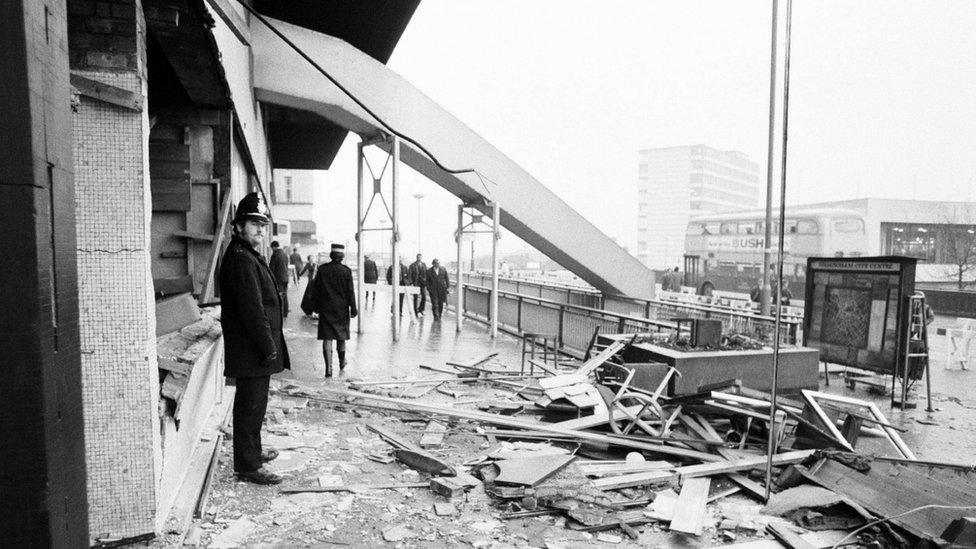
The blasts ripped apart the Mulberry Bush pub at the base of the Rotunda and the Tavern in the Town in nearby New Street
Six men - Hugh Callaghan, Paddy Hill, Gerard Hunter, Richard McIlkenny, William Power and John Walker - were wrongly jailed for life in 1975 for the bombings.
The group, who became known as the Birmingham Six, had their convictions quashed in the appeal court and they were released in 1991.

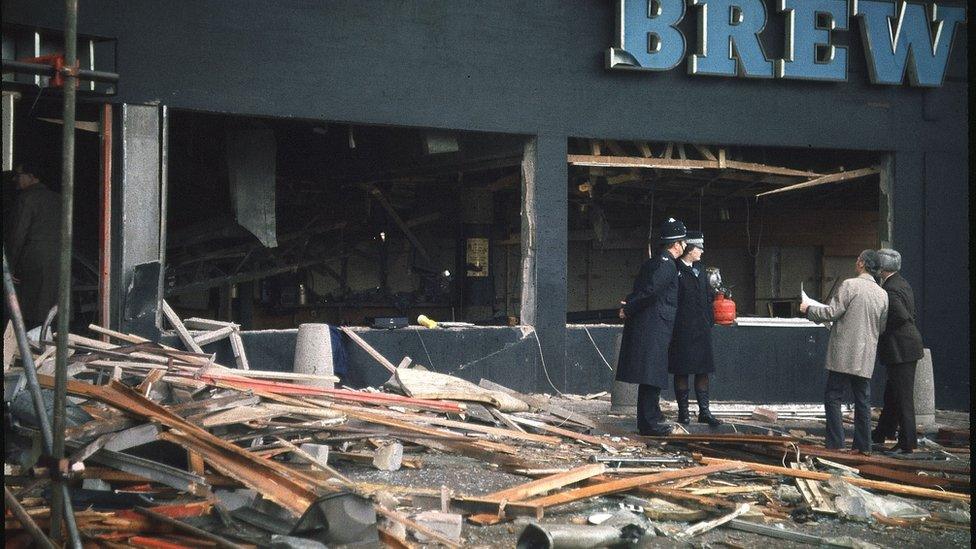
Inquests into the deaths of those killed in the bombings found they were unlawfully killed
What has happened in the investigation into the Birmingham pub bombings?
21 November 1974: A man telephones the Birmingham Post and Mail to warn two bombs had been planted in the city centre. At 20:17 GMT a bomb exploded in a duffel bag in the Mulberry Bush pub in the Rotunda building, killing 10 people. Minutes later a second bomb went off in the Tavern in the Town leaving 11 more dead.
1975: Six men, Hugh Callaghan, Paddy Hill, Gerard Hunter, Richard McIlkenny, William Power and John Walker, are found guilty of carrying out the bombings.
1985: The World in Action programme names four suspects the production was "100% sure" were the true perpetrators, and said they knew the identity of a fifth.
14 March 1991: After 16 years behind bars, the Birmingham Six have their convictions quashed and, that year, West Midlands Police begins re-investigating the case.
1994: West Midlands Police says there is insufficient evidence for any prosecutions, but the case remains open.
June 2016: Louise Hunt, senior coroner for Birmingham and Solihull, said inquests into the deaths would be reopened. Inquests were opened and adjourned days after the attack but, because the case was subject to a criminal investigation, they were never resumed.
July 2017: Coroner Sir Peter Thornton QC decides the names of the alleged bombers would not be part of the framework of the resumed inquests.. In January, the High Court quashed this ruling, but judges at the Court of Appeal ruled in his favour, meaning suspects would not be named.
April 2019: The inquests find the 21 victims of the pub bombings were unlawfully killed.
October 2020: Following calls by the families of those killed in the bombings, Home Secretary Priti Patel agrees to consider the case for a public inquiry.

Julie Hambleton, whose 18-year-old sister Maxine died in the bombings, called the arrest "the most monumental event" in the criminal investigation since the quashing of those convictions.
She said she broke down in tears when she was told by a senior West Midlands Police officer of the arrest.
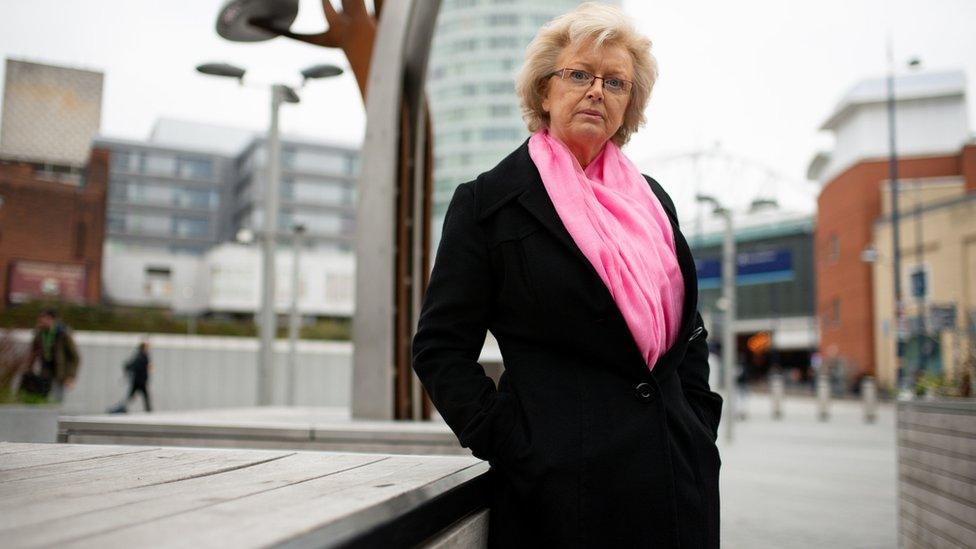
Julie Hambleton, whose sister Maxine was killed in the bombings, said news of the arrest was "overwhelming"
"I couldn't speak, I was just inconsolable and was just looking at the picture of Maxine," she said.
"It's welcome news. It's overwhelming news. It's tangible progress."
However, Ms Hambleton, who is part of campaign group Justice for the 21, said: "Having this development - whatever happens - does not in any way lessen our desire for a full public inquiry.
"There are wider issues which need to be examined and so much that went wrong, like why six men were arrested for a crime they didn't commit."
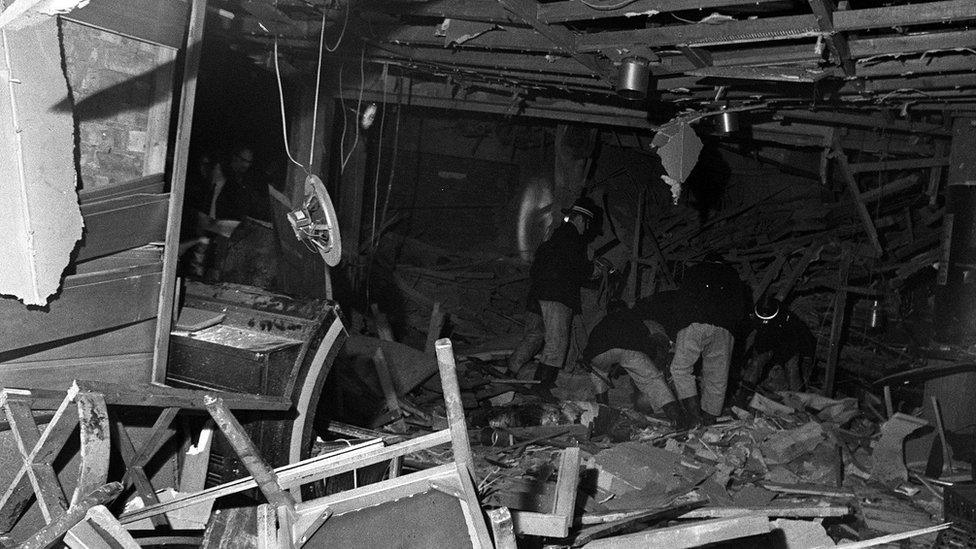
Two bombs detonated within minutes of each other in Birmingham
Paul Rowlands, whose father John Rowlands was killed in the Mulberry Bush, said: "It's a positive step.
"It is, however, just a step and it does not detract from the fact that we need a public inquiry."

Analysis
By Phil Mackie, BBC Midlands correspondent
For a long time the victims' families have felt that not enough effort was being put into the criminal investigation.
The most recent review of the evidence by West Midlands Police, which took place before the inquests, came up with nothing new.
Campaigners have always believed that if the bombings had happened in London or Manchester the authorities would have made the case a bigger priority, and that's why they've given today's development such a positive reaction.
They already believe momentum is with them after Home Secretary Priti Patel announced she was considering allowing a public inquiry into the bombings.
It's the first arrest in the case in more than four decades.

And 73-year-old Bill Craig, an ex-West Midlands Police officer whose brother James Craig was fatally injured in the bombing, said he welcomed the arrest, adding there were still "more questions than answers" surrounding the attacks.
George Jones, 72, whose postman father John "Cliff" Jones died in the Mulberry Bush blast, said: "Obviously it's something positive, and it's happened just with the anniversary (of the bombings) coming up.
"I hope this time West Midlands Police is more efficient than the original investigation team were."

Follow BBC West Midlands on Facebook, external, Twitter, external and Instagram, external. Send your story ideas to: newsonline.westmidlands@bbc.co.uk , external
- Published19 October 2020

- Published6 February 2020
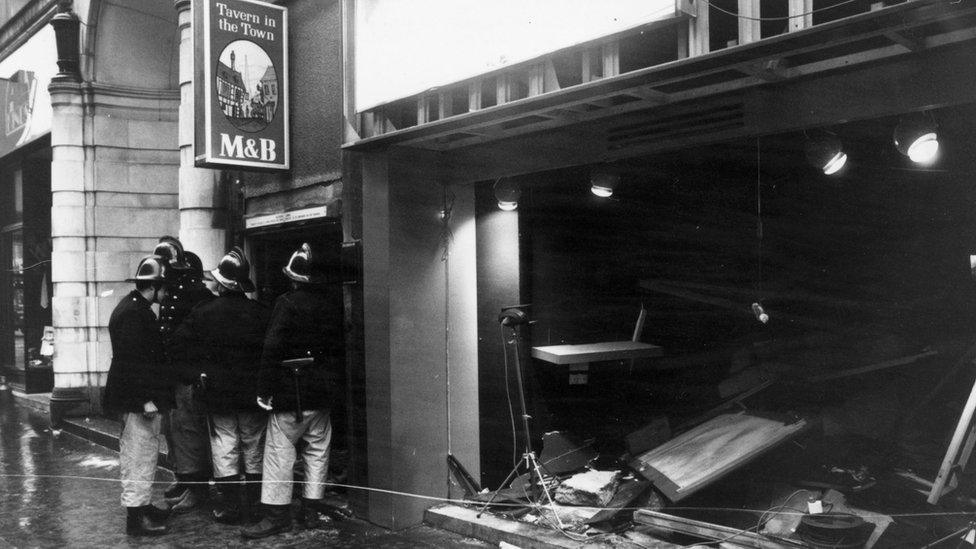
- Published21 November 2019
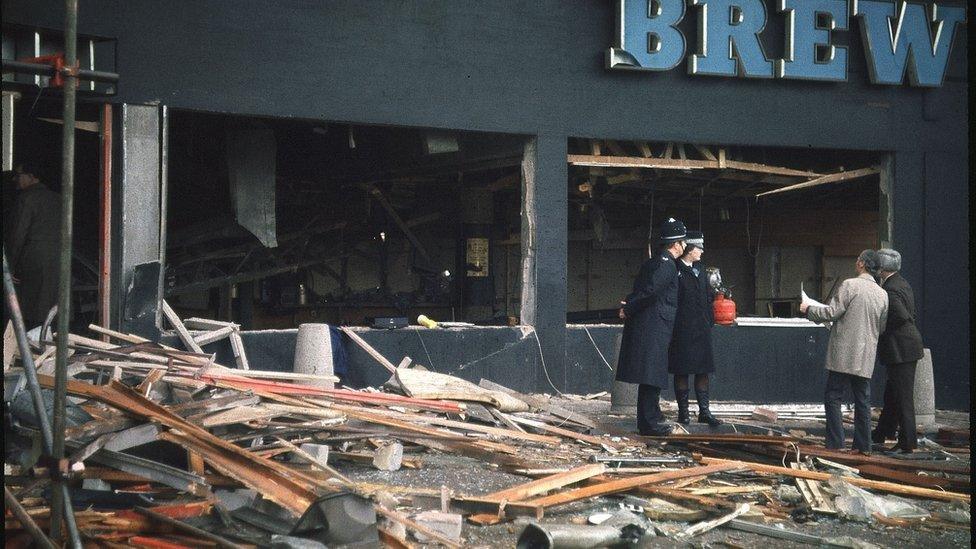
- Published3 October 2019

- Published5 April 2019
